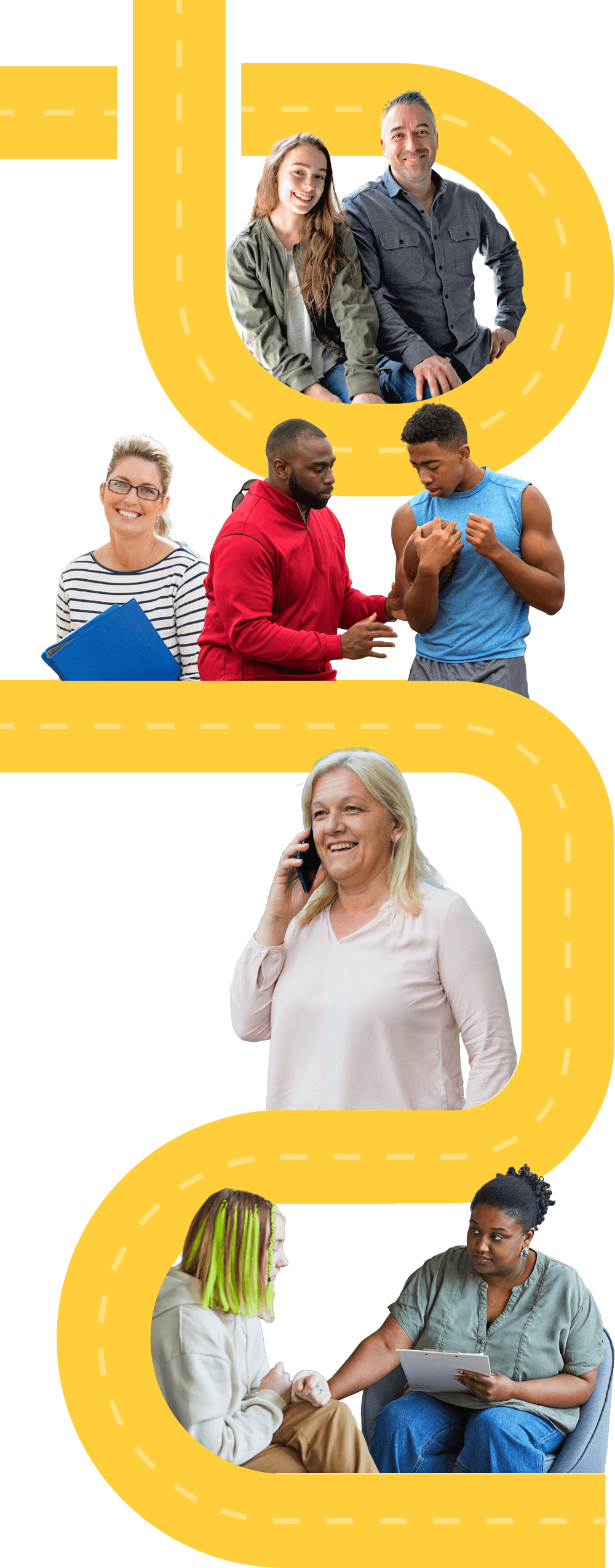Pathway to Care



Noticing Symptoms
Individuals start showing early symptoms between the ages of 16-35 and they likely increase in intensity over time. It is important to note that symptoms look different in everyone and that not every individual experiences every symptom.

The Role of Family & Friends
Family and friends know their loved ones better than anyone and are often the first to notice when something’s “off.” They also play a crucial role in identifying any family history of schizophrenia or other mental illnesses, which may increase an individual's risk of experiencing psychosis.
However, even when it's clear something’s wrong, there may be barriers that extend the pathway to care. By knowing what to expect, we’ll help family and friends stay empowered.

Community Interactions that can Lead to Intervention
Everyone who interacts with youth regularly (coaches, teachers, clergy, youth counselors, law enforcement, etc.) plays a key role in getting individuals the care they need. By knowing what psychosis looks like and what help is available, they can spot symptoms sooner and provide individuals and families with support. As trusted members of the community, they can make a difference to those unsure of what to do. Open, welcoming, and compassionate attitudes encourage people who are affected not to suffer in silence.

Referral to Care
A referral to treatment is just a phone call away. Mindmap’s Early Detection and Assessment Coordinators (EDACs) are available to screen for psychosis over the phone and connect individuals to care. We work with a robust network of mental health care providers across the state who are ready to provide treatment to individuals in need.
Please keep our referral number handy to use and share with others:

Treatment
Once you're connected to care you will work with your treatment provider to figure out which elements of care will be helpful for you. Treatment can include:
- meeting one-on-one with a therapist
- discussing with a prescriber to see if medication would be recommended
- groups to learn and practice new skills
- support around education and/or work
- education for your family
Overcoming Obstacles
Stigma
Others may express negative judgments, criticism, or shame in response to you sharing your experiences. This is typical because so little is understood about psychosis in the community. By sharing factual information about what psychosis and treatment for psychosis look like, Mindmap is dispelling myths and making it safer and more comfortable to talk about it.
Denial
Confusion
It can be hard to distinguish between psychosis and other mental health or behavioral concerns. Especially since symptoms appear at an age when individuals are prone to experience difficulties with being a teen and growing into adulthood. There may be some days when everything seems relatively normal, or changing symptoms create uncertainty.
Mindmap has trained specialists available to help you sort out your unique situation and bring you clarity. Even if you’re not sure whether psychosis is really the issue or “bad enough”, there is no downside to calling to find out. Call 203-200-0140.
Having to Wait for an Appointment
Sometimes, obstacles lie within the healthcare system itself. By connecting you directly to care, Mindmap is shortening the process so you or your loved one gets short-term relief and long-term results from treatment.
When you call our referral line, you’ll be connected to an Early Detection and Assessment Coordinator (EDAC) who will help you determine eligibility and screen for psychosis. Referrals are then made to mental health care providers who have partnered with us to accept patients into treatment.

